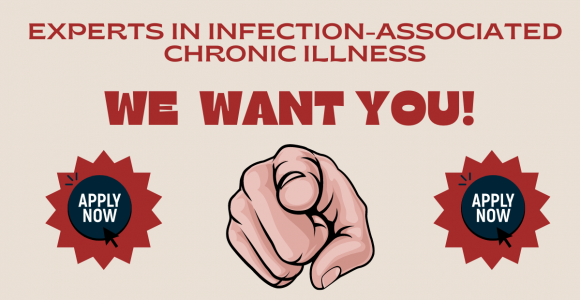Congress launched ARPA-H (the Advanced Research Projects Agency for Health) this past March to focus on high-risk, high-reward research projects with the goal to solve intractable health problems.
As ARPA-H is in the process of hiring its first cohort of program managers, #MEAction and a coalition of chronic disease advocacy groups have published an open letter calling for experts in infection-associated chronic illness to pursue this opportunity.
Our coalition includes: #MEAction, Strategies for High Impact, COVID-19 Longhauler Advocacy Project, The Network for Long COVID Justice, Patient-Led Research Collaborative, Solve M.E. and the Long COVID Alliance.
Tens of millions of people are living with infection-associated chronic diseases, which have finally been given some attention in the wake of COVID-19. These infection-associated chronic diseases include: Long COVID, myalgic encephalomyelitis/chronic fatigue syndrome (ME/CFS), dysautonomia (including postural orthostatic tachycardia syndrome [POTS]), mast cell activation syndrome (MCAS), and chronic Lyme disease/post-treatment Lyme disease syndrome (PTLDS), to name a few.
“The impetus for this letter is the recognition of the immense potential for ARPA-H to address these long-neglected conditions and alleviate their burden on society,” states our open letter. “ARPA-H presents a unique and profound opportunity to advance the science of and facilitate effective treatments for infection-associated chronic illnesses, and, at long last, to improve function and quality of life in the many millions living with these disabling conditions.”
Communities of people living with infection-associated chronic diseases are trapped in a vicious cycle of stigma and ignorance, and they face a reality where diagnoses are usually lacking or insulting, support for research is impeded, and the development of treatments is never a priority. Furthermore, this vicious cycle is woven deeply into medical education and healthcare infrastructure, which barely acknowledge the existence of complex chronic conditions.
Therefore, there is an urgent need for significant advances and breakthroughs in the science underlying these debilitating conditions and the technologies needed to advance the research and bring people (patients, families, caregivers) relief. These include the development of new diagnostic tools and mechanisms for capturing health data and delivering therapeutics, as well as transformative breakthroughs in the understanding and treatment of infection-associated chronic illness.
All of this speaks to the immense potential that ARPA-H presents in improving the lives of so many, especially those who have fallen through the cracks of our healthcare system.






1 thought on “Infection-associated chronic disease experts needed at ARPA-H”
Diagnosed with fibromyalgia in 2004. Functioned well, but declining until giving up my business in 2012. We all live with the guilt of disappointing others and the anger of hearing “you look terrific.” Where is FM in this push on ME. Aren’t we all one. Hasn’t Long Covid shined a light on infection-acquired chronic fatigue…at long last.
Comments are closed.